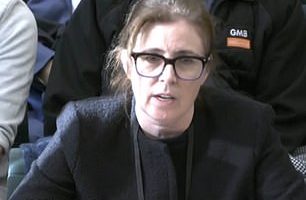A HIKE to interest rates expected to be announced today could push up mortgage costs by hundreds of pounds a year for millions of homeowners.
The Bank of England (BoE) is set to increase the base rate by 0.25% – its fifth consecutive increase – taking it to 1.25%.
The hike is likely to be passed on to homeowners in the form of higher interest rates on mortgages.
How your affected depends on the type of mortgage deal you have.
Around 850,000 homeowners with a tracker mortgage will see an immediate rise to their rate as it’s directly linked to the BoE’s rate.
Anyone on a fixed deal won’t see a change straight away.


But they could see higher rates when they come to the end of the term, either when shopping for a new fixed deal or reverting to the standard variable rate (SVR).
Homeowners currently on an SVR could see a more immediate increase to their mortgage rate if the BoE decides to hike rates.
It could cost hundreds of pounds more for the 1.1million homeowners with this type of loan.
Previous rate hikes have already pushed up mortgage costs – and repayments could rise further.
A 0.25% rate hike is estimated to add £30 a month to a £250,000 mortgage with a 25 year term, according to credit app TotallyMoney – or £360 a year.
Most read in Money
For a pricier loan of £400,000, borrowers will pay an extra £48 a month, or £576 a year.
Andrew Hagger, personal finance expert at Moneycomms.co.uk said: “The latest hike in mortgage payments will be a hammer blow to households up and down the country, who are facing a tsunami of increased costs for essential goods and services.
“Those customers on a fixed rate will be shielded for now, but when their fixed rate comes up for renewal, some will face a triple-digit monthly payment increase.”
Homeowners with fixed deals coming to an end in the next three to six months have been urged to lock in a new rate now to avoid being clobbered with extra costs.
And those on SVRs could find they get a better deal by moving to a fixed deal.
The Bank of England (BoE) is expected to increase interest rates to tackle soaring prices.
Inflation is currently 9% and last month the BoE said it expected that to hit 10% this year, piling more pressure on hard up households.
Experts believe that fresh data about the economy published this week means that a larger rate hike is off the table.
GDP fell 0.3% in April, an indicator that the economy is shrinking rather than growing, fuelling fears of a recession.
A rate hike can also push up the cost of loans, credit cards and other types of borrowing, but savers could see a better return – if banks choose to pass on the higher rate.
How does an interest rate hike impact my finances?
If the BoE raises the base rate, it could impact your finances.
How the changes affect you will depend on your personal circumstances.
Many homeowners would pay more on their mortgage repayments if interest rates go up.
If you’re on a fixed-rate mortgage, the increase won’t immediately affect your payments.
But other mortgages, such as a tracker or standard variable rate mortgage, could be impacted straight away.
Tracker mortgages are linked to the Bank of England base rate – which means you will see an immediate impact on your mortgage repayments if rates go up.
Homeowners on variable rate mortgages wouldn’t see their repayments go up straight away, but they would likely increase shortly after interest rates are hiked.
Your bank should tell you about a change to your SVR before it goes up.
SVRs are generally higher than fixed rate deals, so if you’re on one then you’re likely already be paying more than you need to already.
Moving to a fixed rate mortgage could help you avoid future rises by locking in a lower rate.
You might find that the interest rate on your credit card or overdraft will rise along with a Bank of England rate hike.
Many big banks – like Lloyds Bank, MBNA, Halifax and Barclaycard – link their credit card rates directly to the Bank of England base rate.
That means their credit card rates will hike automatically in line with any changes to interest rates – but you’ll be given notice before this happens.


You can check the terms and conditions of your credit card to see if the rate can go up when the base rate does.
If you had a balance of £2,000 on your credit card, a 0.25 percentage points rate rise would add an extra £5 onto your bill per year.
We pay for your stories!
Do you have a story for The Sun Online Money team?










